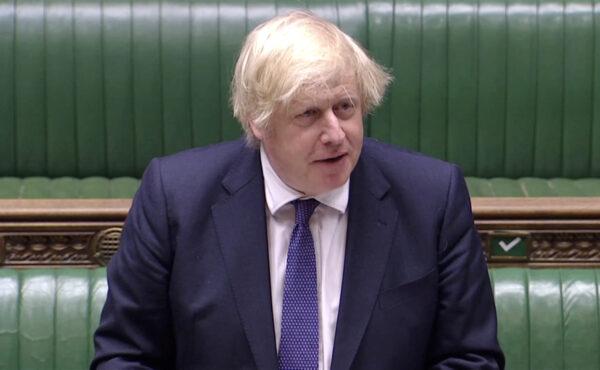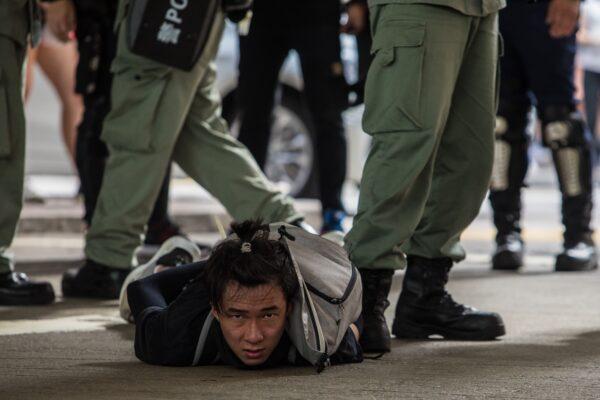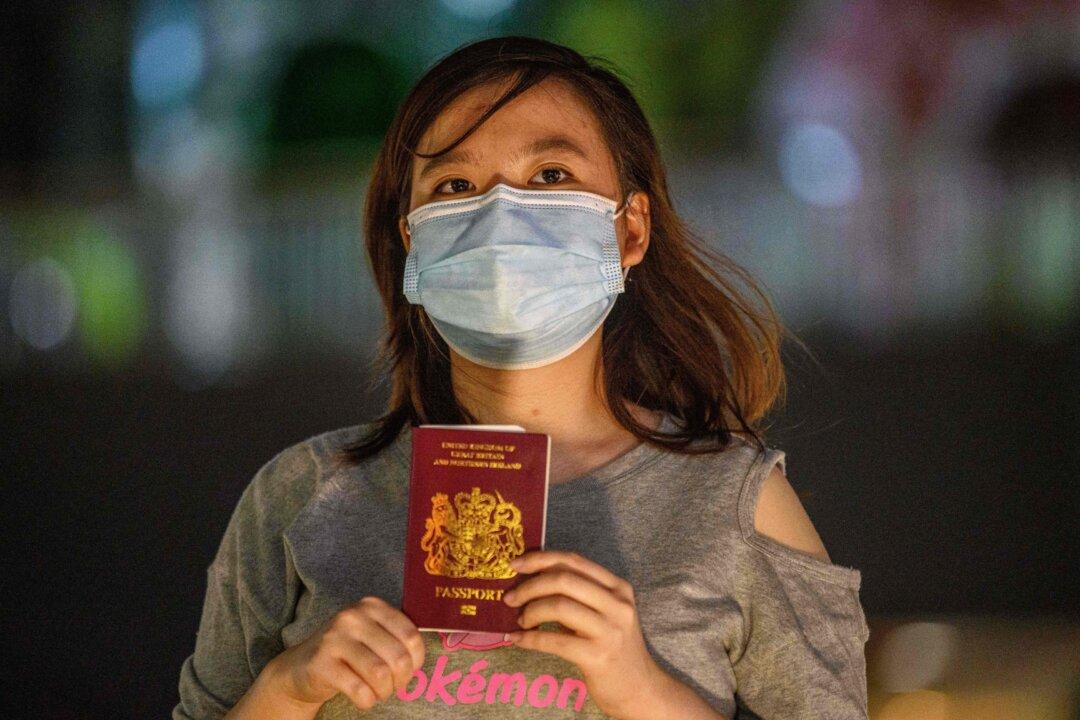The Chinese regime said on Friday it will stop recognizing British National (Overseas) passports as travel and identity documents in response to Britain’s offer of a pathway to citizenship to millions of Hong Kong residents.
The scheme, first announced last July after Beijing’s imposition of a draconian national security law for Hong Kong, allows BN(O) status holders to live, study, and work in the UK for five years and eventually apply for citizenship.

Prime Minister Boris Johnson said he was “immensely proud” of having introduced the new scheme.
“In doing so we have honoured our profound ties of history and friendship with the people of Hong Kong, and we have stood up for freedom and autonomy—values both the UK and Hong Kong hold dear,” he said in a statement.
Chinese Foreign Ministry spokesman Zhao Lijian blasted the British scheme, saying it “seriously infringes on China’s sovereignty, grossly interferes in Hong Kong affairs and China’s internal affairs, and seriously violates international law and the basic norms of international relations.”

“The British side’s attempt to turn a large number of Hong Kong people into second-class British citizens has completely changed the nature of the two sides’ original understanding of BN(O),” Zhao said at a routine press briefing on Friday.
“China will no longer recognize the so-called BN(O) passport as a travel document and proof of identity starting from Jan. 31, and reserves the right to take further measures,” he said.
Despite the harsh rhetoric, it is not clear what impact, if any, Beijing’s new move will have on Hongkongers’ ability to travel or relocate.
Applicants for the new visa do not have to hold a BN(O) passport. They can apply as long as the UK Home Office confirms their status by checking their records.
From Feb. 23, applicants will not even need to visit a visa application center, and will be able to apply from home with a smartphone app.
“BN(O) status holders and their eligible family members who hold a biometric BN(O), Hong Kong Special Administrative Region, or European Economic Area (EEA) passport can scan their passport on the app and complete their application from home,” the UK government said on Friday.
But the organization urged the UK government to be “ready to introduce counter measures to ensure Hong Kongers are freely able to leave the city and take up BNO and other lifeboat policies if there are substantive restrictions placed on freedom of movement.”
The national security law, which went into effect on June 30, 2020, criminalizes individuals for any acts of subversion, secession, and collusion with foreign forces against the Chinese Communist Party, with a maximum penalty of life imprisonment.
“We have been clear we won’t look the other way when it comes to Hong Kong,” Britain’s Foreign Secretary Dominic Raab said on Friday. “We will live up to our historic responsibility to its people.”





